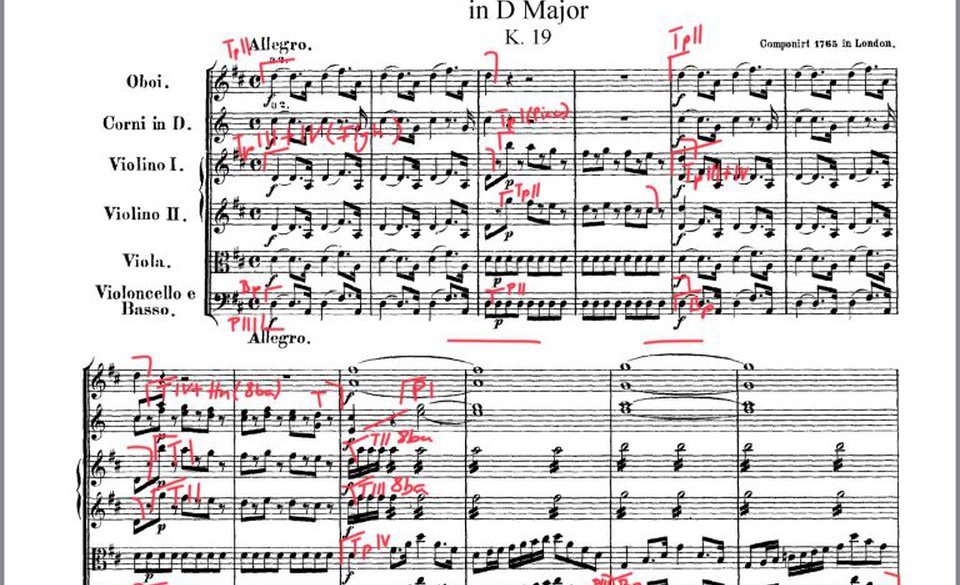11.00 Uhr
cappella academica, Christiane Silber

Peter Dörpinghaus was fascinated by the trumpet as a young boy. He eavesdropped on the local music club in Wipperfürth, where his father played the trombone and tenor horn. At the age of four, our principal trumpeter wanted an instrument of his own and was first given a cornet, which is a bit smaller than a trumpet. He created his own brass ensemble while still at school. Since 2016, he has been playing the principal trumpet in the Konzerthausorchester.
Nervousness is a completely natural reaction, one we all have to learn to deal with. The difficulty with all wind instruments is that we produce the sound with our body and our breathing. Nervousness is first and foremost reflected in the heartbeat and breathing. You tend to breathe faster and more superficially, but that’s exactly what you shouldn’t do as a wind player. When you’re nervous, everything tenses up – I had an audition once where I couldn’t even produce a single sound.
Definitely: exhaling. If you breathe out more than you breathe in, your body and pulse automatically become calmer. Then you are prepared for the difficult parts. And it helps to play a few soft notes beforehand, so that the sound responds when you’re sitting on stage.
For example, with my brass ensemble “Salaputia Brass”. In Latin, “Salaputium” is the dwarf or “lecherous little tot”. We got together in the Federal Youth Orchestra in 2007 and find it amusing that we are still making music at an advanced age and are called the “lecherous little tots”. Whether that’s really still amusing remains to be seen. In any case, we’ve been playing in a large ensemble since 2011.
Our focus is on original compositions for brass with a chamber music formation. This genre has only existed since the 1950s. At that time, for example, the London trumpeter Philip Jones found himself a bit bored playing in an orchestra, so he founded his own ensemble without any further ado. The repertoire is not yet that extensive, so we occasionally commission compositions or arrange them ourselves.
I often hear passages in a piece that I can imagine being played with brass. Or we receive concrete requests from festivals. Then I start writing directly in the score and jotting down which instrument plays which notes. This works very well on a tablet when I’m in a train. Afterwards I usually have to put the arrangement down for a while until I can finish it.

This is what it looks like when Peter enters notes in the score and also what it sounds like (“Roots” by Salaputia Brass, released in 2020 on Oehms Classic)
In the #doppeltgefragt edition with solo clarinettist Ralf Forster, Peter even reveals what his favourite instrument is:
Peter Dörpinghaus grew up in North Rhine-Westphalia in the Bergisches Land region, studied in Essen and in Hanover with Jeroen Berwaerts and was a scholarship holder at the Orchestra Academy of the Bamberg Symphony. The prize-winner of the Deutsche Stiftung Musikleben has also won national and international prizes with his brass quintet Salaputia Brass. In the 2013/14 season he was principal trumpet with the Hamburg Philharmonic, and has performed with the Konzerthausorchester Berlin in this position since 2016.
Fotos: Marco Borggreve, Ralf Forster, Luisa Aha